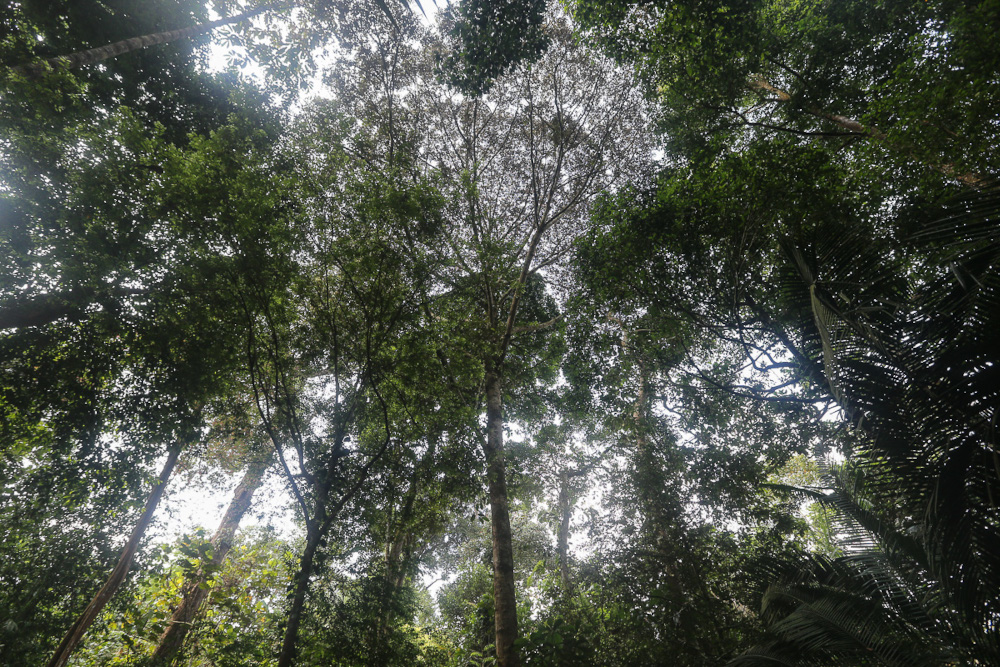KOTA KINABALU, Nov 18 — Sabah Deputy Chief Minister Datuk Dr Jeffrey Kitingan has backed the Singapore-based company handling the state’s controversial carbon trading deal to come good, citing its experience in the field.
Facing criticism for opting for an outside source to market the state’s carbon in a potential two million-hectare deal, Kitingan said that due diligence was done on Hoch Standard, the private firm that signed an agreement with the state on October 30.
“The company is not an issue. We are confident in their background. It is backed by several multi-billion private equity funding institutions.
“I am told that they are dealing with other countries, such as Indonesia, Australia, South America dealing with monetising natural capital,” Kitingan told reporters here
Earlier, when speaking during a dialogue with non-governmental organisations, the agriculture and fisheries minister said that initial reports that the state was dealing with Tierra Australia was not true, and also denied news that Hoch Standard only had a paid-up capital of US$1,000 (RM4,177).
“It’s not true. Hoch Standard is a global player, involved in private equity funding all over the world. You cannot just look at offices and whether a company has 100,000 employees. In this era of the internet we must look at things appropriately,” he said.
“Don’t worry, we have done our due diligence. We also do not want to be conned again, and we do not want to face failure. This is conservation for our future generations,” said the Keningau MP and Tambunan assemblyman.
He was responding to a question on the legitimacy of Hoch Standard, which was raised by NGOs during the briefing at his residence in Penampang here.
Kitingan was facing the NGOs and native customary groups in person and via online meeting platform Zoom, to brief them on a controversial carbon trading deal that could involve about half of Sabah’s forest estate.
The Nature Conservation Agreement (NCA), set to be announced in January was leaked by conservation website MongaBay, would initially involve 600,000 hectares of land, with the potential to go up to two million if successful.
The agreement has irked NGOs and groups who blasted it for a lack of transparency, free, prior and informed consent, and for involving a foreign company that is set to get a 30 per cent profit share.
Kitingan said that Hoch Standard approached the previous state government some four years ago, and as part of the agreement, would provide the trading platform – connection to the off-takers, the auditors, asset verifiers and also the United Nations body involved in carbon trading.
“This is going to be block chained and the use of A.I, satellite technology and will be transparent.
“The 30 per cent cut is because they have to set up the platform — engage with off-takers, ensure that the scientific evaluation, pricing, carbon — this is part of the responsibility of the company. The Nature Conservation Management Plan is also their responsibility. This is subject to the approval of the state,” he said.
When asked about its plans to engage in free, prior and informed consent, Kitingan said the state had gone through due process when it gazetted the concerned land as Totally Protected Areas (TPA), and there would be no changes to the native indigenous communities’ lifestyle or ownership, which were already protected by law.
“Because the agreement involves mostly TPAs — there is nothing new that requires another exercise of that nature. Also, because of Covid, we cannot exercise what we normally do. However, we will rectify based on feedback. All worries will be taken into account,” he said.
He also said that state assemblymen who were concerned could ask questions about the NCA during the upcoming Budget sitting on December 3 onwards, although it won’t be filed as a motion or an endorsement.
“There is no need to bring this to the state assembly, we are not enacting new laws, we are applying what has been enacted already. But members can ask questions — I already saw questions on this,” he said.
During the two hour briefing, Kitingan gave an introduction to the rationale behind the NCA, followed by Richard Taumas, a local forester. NGOs in attendance in person included WWF and Sabah Environmental Protection Association while others attended online.
Kitingan was the sole representative of the government during the dialogue.



















